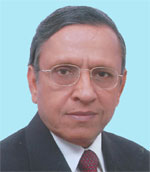 Man can survive without food for days, but not water. Something so essential cannot be wasted rather should be celebrated. On the occasion of the World Water Day, Indian Red Cross Society wants to focus on the bottom billion of the world and lakhs in India who live in slums and impoverished rural areas and who survive without access to safe drinking water and adequate sanitation. Man can survive without food for days, but not water. Something so essential cannot be wasted rather should be celebrated. On the occasion of the World Water Day, Indian Red Cross Society wants to focus on the bottom billion of the world and lakhs in India who live in slums and impoverished rural areas and who survive without access to safe drinking water and adequate sanitation.
There exist many inequalities and they need to be addressed, whether through right development policies or through crosscutting administrative frameworks that bridge governance and the populace. Millions of Indians currently lack access to clean drinking water, and the situation is only getting worse. India’s demand for water is growing at an alarming rate.
India currently has the world’s second largest population, which is expected to overtake China’s by 2050 when it will reach a staggering 1.6 billion,[3] putting increasing strain on water resources as the number of people grows. A rapidly growing economy and a large agricultural sector stretch India’s supply of water even thinner. Sustainability and conservation of existent water in the eco-system is imperative and needs to be addressed. Water is a huge source of energy that still needs judicious tapping in order to create green economies. Focused attention on identifying best practises for sustainability can actually go a long way in making water and energy efficient world, a reality.
The Indian Red Cross Society is the acknowledged leader in providing clean drinking water to communities during disasters and crisis situations for many years now. We are constantly innovating and acquiring machines for water sanitation that can be put to use for meeting greater community needs during such exigencies. All disasters pose scarcity of safe water as well as infections spreading through unclean/unsafe water. The fleet of such WatSan machines with the IRCS can be immediately transported and deployed in areas which are affected by disasters and where there is a dearth of safe drinking water as IRCS lays great importance and thrust on being able to serve this very essential need of the people.
IRCS branches through their large network of volunteers including FMRs also undertake campaigns on climate change and spread the message about this dwindling natural resource and its rational utilization. These FMRs and other volunteers promote water conservation and hygiene in both the response and recovery phases of the disasters.
On World Water Day, I would like to call upon more and more people from the communities to join the IRCS volunteer movement to act as water conservers and help by making communities aware about safe drinking water as well as methods of sustainability. Drinking water supply and sanitation in India continue to be inadequate, despite longstanding efforts by the various levels of government and communities to improve coverage. The level of investment in water and sanitation, albeit low by international standards, has increased during the last decade. Access has also increased significantly. Only a mass people effort can lead the country to be ecologically aware, understand the dependence of man on environment systems, resort to water conservation methods and thereby avert any impending water crisis that our future generations may have to see. As a 9 year old girl rightly wrote “Save water, water is life. Without water we cannot survive. Wasting water is not right. Save water make tomorrow bright.”
Dr S P Agarwal
Secretary General,
Indian Red Cross Society
|